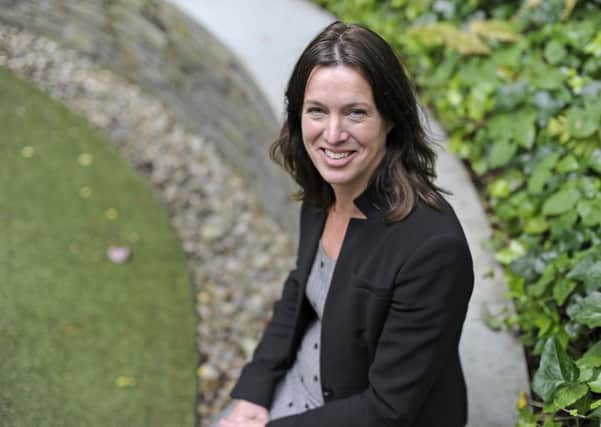Chief medical officer reveals '˜untold story' over invasive treatment for terminally ill


Dr Catherine Calderwood told Scotland on Sunday how the twin pressures of a reluctance to challenge doctors and pressure from families often leads a dying patient to choose to have treatment when their own preferred option would have been to have none.
Speaking after addressing a group of palliative care professionals at a Marie Curie event in Edinburgh last week she laid bare the harsh realities of the decision- making process all of us will one day face.
Advertisement
Hide AdAdvertisement
Hide AdShe said: “My untold story is that very often I hear from families after the event who say ‘I wish we hadn’t gone down that treatment route’.
“The clinicians often say that there’s a roomful of people [involved in the decision-making process] but what the family wants is not at the centre of this – it’s the patient who decides.
“They say very often the pressure comes from the family and often the person feels pressurised because their daughter says ‘I think you should have this’ and actually when you remove that family pressure, often the patients are relieved. They say ‘I didn’t want that operation, I didn’t want that chemotherapy. I felt I should have it because my daughter was pushing.’”
Calderwood described the phenomenon of the ‘Surrey daughter’ as an example of the pressure that families can heap – often without realising that they are doing so – on their terminally ill relatives.
Advertisement
Hide AdAdvertisement
Hide AdClinicians dealing with end of life discussions need to involve the whole family, she said, but this discussion should never override the wishes of the terminally ill patient.
Supposing the discussion was about how a family should best care for their dying mother, she said, the key question should be “Let’s ask what mum wants. What is it that the person who’s going to have to undergo the treatment wants? Often the voice of that person gets lost.
“They talk about the daughter from Surrey – someone who hasn’t been there, hasn’t seen anything, and yet wants everything done.”
Calderwood has also noted that research shows medical professionals are more likely to opt for the no-treatment route for end of life while pushing their patients down another path.
Advertisement
Hide AdAdvertisement
Hide Ad“Eighty-eight per cent of doctors wouldn’t have hemodialysis at end of life, 95 per cent wouldn’t have CPR and 67 per cent wouldn’t agree to be admitted to intensive care.
“What I couldn’t understand – and I’m someone who understands the treatment, risks and the downsides – was why are doctors saying ‘I don’t want that for me but I’m going to give it to others’?
“There’s further research that says doctors tend to overestimate the benefits of treatment when talking to people and underestimate the risks – because we are naturally fixers and want to do something for people.
“So, this change in the conversation is actually about being more realistic about what we’re telling people.”
Advertisement
Hide AdAdvertisement
Hide AdCalderwood published her first annual report, Realistic Medicine, in 2016. This outlined an approach that aims to put the patient at the centre of decision-making about their health and care. She aims that all Scotland’s healthcare professionals will adopt this approach by 2025 and challenged the notion from sections of the media that her initiative was nothing more than a cost-cutting exercise.
Calderwood said: “This isn’t about reducing the money at the end of life –we’re going to still need some of that –but why don’t we prioritise keeping healthy?
“Why is everything thrown at things that are sometimes futile because the person has already been diagnosed with a terminal illness?
“Cynical journalists have tried to make mischief with realistic medicine by saying ‘This is just about saving money’ but actually we do stuff that has no benefit for outcomes and if it’s got no benefit then it’s actually harmful.
“We need to stop doing things that aren’t clinically proven to have benefit but on the other hand why are we not channelling that – I would argue – waste of money, into better care?”